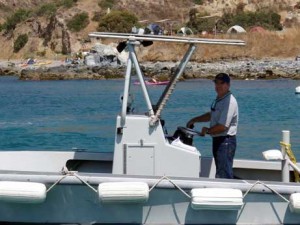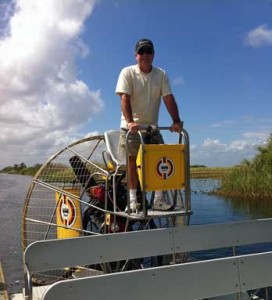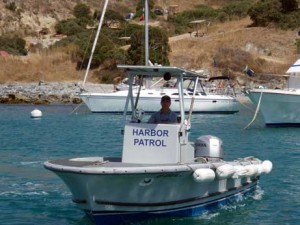 By Captain John and Captain Suzanne O’Rourke
By Captain John and Captain Suzanne O’Rourke
Getting paid to play on the water is just about heaven to us. How can it possibly get any better? But, those same jobs can turn ugly in the winter or hurricane season. So how can you enjoy the BEST of the boating lifestyle and earn a paycheck during the good times? Well, there is a solution. Work seasonal jobs.
Worldwide in almost all summer vacation spots there are boating jobs. They can be on Lakes, Rivers and Oceans.
We both hold U.S. Coast Guard 100 Ton Captains Licenses. These are considered Professional licenses that allow us to hold Captains positions. However, not all seasonal boating jobs require this level of commitment or expertise. Not all countries require Captains licenses to be the boat operator, so some Captaining jobs may be an option in other countries.
Here is a list of some of the boating Jobs that you can consider. Some of these require little or no experience.
Cook or Chef on a boat
Crew on a an oil rig tender
Wildlife tours
Airboat tours
Historic Tall Ships
Crew on a freighter
Crew on a Fishing Boat
Fishing guide
Kayak tour guide
Professional crew on a private yacht
Crew on Ferries
Sailing instructor
Dive instructor
Dive boat crew
Navigator
Shore boat operator
Tour boat and Duck boat Crew
White Water rafting guides
Cruise Ship crew
Many of these jobs will offer seasonal work with hourly pay and the possibility of tips. Others like Professional Yacht Crew, Cruise Ship positions, Navigator, Chef and Oil Rig tenders have the possibility of long term employment with salary and benefits.
Some of the most sought after skills include culinary skills as a Chef, Captain Skills, Navigator skills and Fishing Expertise. If you wish to cultivate any of these skills sets there are specialized schools and certifications that you should research. This post will not go into depth about these specialties, but if there is interest from the Itchy Nomads we are happy to provide additional posts on any of these specialized areas of interest.
We both took six week courses that were very intense at Orange Coast College in Newport Beach, California to pass our U.S. Coast Guard Captains license exams. We also had to provide documentation of the 1000s’ of hours at sea that we had already logged and could document. Typically you will need to work your way up on a vessel to earn your Sea time and be able to prove it.
If you think you are interested in seasonal work on a boat, here are simple actions to get the ball rolling.
- Determine geographically where you think you’d like to be, for example the Florida Keys, Tahiti, Lake Tahoe or Patagonia.
- Once you determine a possible area, then you can start to research the type of boating activities that are offered there, determine the high season and identify who the local boat operating companies are.
- Zero-in on the type of actual job you think you’d enjoy.
- Contact the operators of those types of jobs ASAP. A year in advance of the good season is not a bad idea. Build a rapport with the contacts you make at each company.

- If you have no experience, be honest about that, but tell them you really want to learn and ask what you could be doing in advance to prepare for a job should one come open.
- Submit a resume with references as soon as possible, even for a simple job like a float rafting company. It shows professionalism.
- Get First Aid and CPR Certified on your own in advance. These courses are offered at Red Cross offices worldwide. This proves awareness and looks good when you apply.
- Call regularly to check on the possibility of a job, and to demonstrate that you are still very interested.
- If you are considering a job in a foreign country, make sure in advance that the company hiring you will get you a work visa. Being deported is a lousy way to finish a fun adventure.
“Time spent on the water is not deducted from one’s lifespan.”

Leave a Reply